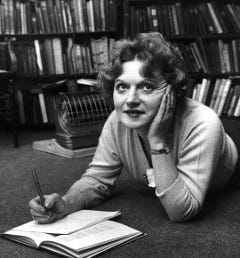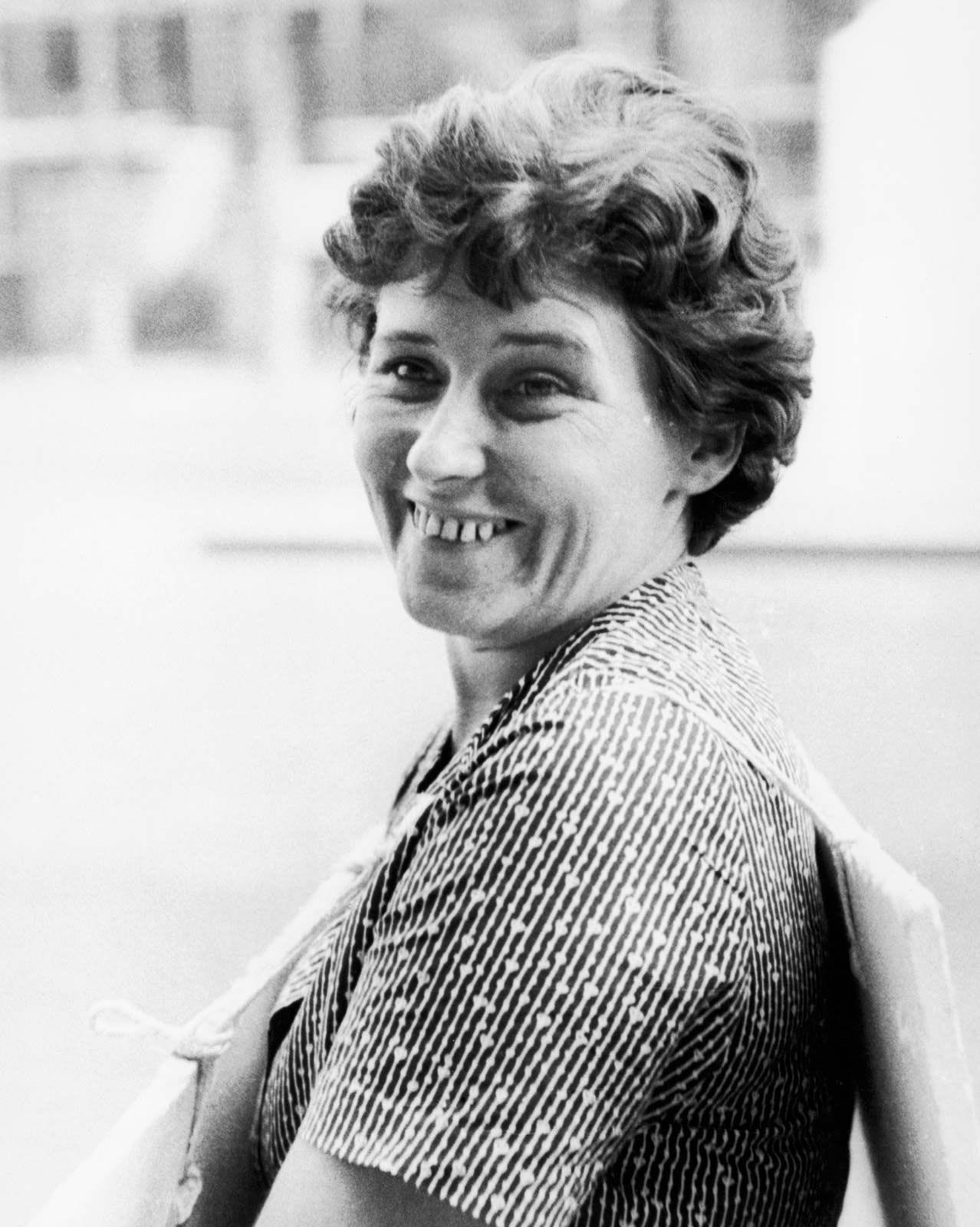Welcome to a narrative of their Own, an essay newsletter discussing the lives and literature of women.
If you enjoy reading essays on literature, as well as reviews of great books and recommended reading, please consider a free or paid subscription.
Something that has always interested me and which I have written on before is the idea of writer friendships.
I know many people mention on Substack the community they are building and how important it has become to them. Writing can be a lonely, frustrating, often isolating experience, (as can many other areas of life, of course). What I find can be tricky is that other people on the outside of writing don’t always understand what you are doing it all for. I know I’ve witnessed the blank faces of people sometimes when I tell them I’ve been working on an essay—not for an assignment or course, but just because it brings me joy to share words and to consider ideas around my reading and writing interests.
Around a year ago, having found my footing (and some lovely people to chat to) here on Substack, I struck out and attended an IRL writers’ group. This isn’t one of those groups where you share your writing though, it is more of a “support group” for nonfiction writers.
Sitting in a room for ninety minutes once a month and chatting with other people who are all working on completely different nonfiction books has been a revelation! The absolute divergence of ideas, the camaraderie, celebrating the success when someone has received positive feedback from an agent, or had something new published.
What I’ve also found useful has been the sounding board the group has become. I think most people who write (or anyone, really) experiences impostor syndrome at times, as well as too much noise from that old friend, the inner critic. Being able to say this out loud to people who you know will get it has been an invaluable source of support and comfort. I always come away from these sessions feeling uplifted and inspired to get home and write.

Another resource I have only just come across has been the London Writers’ Salon. Although I’m not based in London, the LWS provides many virtual workshops, events, interviews and meetups on its website. I initially signed up to trial their daily ‘Writers’ Hours’, which provides a virtual writing space for writers’ to meet and work on their writing. These take place four times a day in different cities around the world, always at 8 am local time. I usually attend the LA writers’ hour, because that falls at 4 pm daily in the UK, a time when nobody generally needs me for anything else and I can focus on an hour of uninterrupted writing time.*
I was unsure whether this would do anything for me at first: wow, was I wrong!! I have been racing to get to my laptop or notebook at 4 pm every day, looking forward to seeing the other writers’ and hearing about what they’re working on. Something about just knowing that there are other people out there who are writing at the same time seems to make me focus on writing for the full hour. If I think about pulling out my phone to check something, I stop myself, because it feels rude during writers’ hours. It’s been a revelation for my concentration and I’ve already got a first draft of a book chapter down in two weeks!
All this talk about finding your writing community got me thinking about famous female writer friendships, something I’ve touched on before here on the newsletter, such as the love/hate friendship of literary modernists’, Virginia Woolf and Katherine Mansfield and the close relationship between writer Jean Rhys and her inimitable editor, Diana Athill.
also recently informed me of evidence of a friendship between Daphne du Maurier and Agatha Christie, through a letter she found whilst researching her brilliant book on Agatha.So I was pleased to recently discover that one of my favourite twentieth century writers Muriel Spark had a friendship with the writer of The Golden Notebook, Doris Lessing.
Spark and Lessing shared many similarities; both intellectuals, small in stature, and born within a year of one another, they went on to become significant writers who subverted convention. Both women also married young, at the age of nineteen, to older men with whom they immediately became pregnant.
Whilst Lessing grew up in Southern Africa, Spark travelled from her home in Edinburgh, Scotland, to Rhodesia (now Zimbabwe) with her new husband. Unbeknown to one another, the two young women writers were living in the same part of the world as they began to establish the careers that would one day make them famous.
Spark realised quite soon after her marriage that her husband was suffering with his mental health. He was unstable and violent, and she felt trapped in an unfamiliar place, far from home.
Lessing had also begun to feel disappointed by her marriage, as well as growing unsettled by Rhodesia’s race relations. Throwing herself into literature and politics, she joined a local communist book club, and ordered her books from London, together with the writing magazine, New Writing, which championed working-class writers alongside their middle-class contemporaries, and something which Spark also loved to read.
Both women later in life confessed that they wished they had known about the other; a female writer living so close by with whom they could have shared the ups and downs of both their writing life and their troubled marriages.
However, their paths did not converge until much later, and they didn’t meet in Rhodesia, but London.
In another mirroring of their life trajectories, both Lessing and Spark had made the heart-wrenching decision to leave their old lives behind. Lessing left her two eldest children with their father in Southern Africa, somewhat surprisingly taking just her youngest child with her to live in London.
Spark, meanwhile, left her young son behind in a Rhodesian boarding school for one year, whilst she also travelled to London, later bringing him back to Scotland to live, not with herself, but with her parents, whom she felt would be best placed to care for him until she was more established.
The two writers’ finally met in the mid-1950’s, when the women were in their late thirties. By this time, Lessing was already a successful writer, known for her novel The Grass is Singing, whereas Spark was yet to publish her first novel.
Lessing wrote about these early years of friendship with Spark in an essay, where Lessing, an active part of a bohemian communist crowd, claimed her initial surprise at Spark’s more traditional style.
The friends’ correspondence shows that they shared more similarities than differences, however. They discussed their lives in Rhodesia, their writing, of course, and provided solace for one another when they found frustration in their work. They also both shared the scrutiny of the media around their personal life, repeatedly facing questioning on their parenting and their decisions to leave their children behind whilst they pursued their writing lives.
Their writing has some striking differences: Spark is well known for her acerbic wit, her ironic narratives and the wonderful use she makes of prolepsis within her novels. Lessing’s work, meanwhile, is arguably within the more radical political sphere. However, dig a bit deeper, and more similarities can also be found.
Both Lessing and Spark’s writing contained an undeniable interest in religion and psychology, subjects which the two of them discussed together. Spark famously converted to Roman Catholicism in 1954, and went on to credit her development as a novelist to this. Lessing meanwhile, once a fervent communist, turned her back on communism in the mid-1960’s, instead adopting Sufism, a mystical strand of Islam. Both women however remained steadfastly anti-establishment, in both the ways they lived and the writing they produced.
I find it heartening when I hear stories such as this; of women writers’ supporting one another through the difficulties and challenges of writing, not to mention public scrutiny over their personal lives and choices (some things sadly never change).
But even more so, I love to read of women who have celebrated the successes of one another. There is something so powerful in the positive support of other women, of other writers. I often think the media and history likes to pit women against one another as rivals. However, I think that stories like this and many others show that this isn’t always the case. We are all stronger together.
I’d love to hear of your writer-friends and who you look to for that all important inspiration to create! 😀
If you’re new around here, I usually write about all things women literature related. Please consider a free or paid subscription - your support helps keep this newsletter afloat!
*If you’re interested in the London Writers’ Salon (wherever you are based, not just in the UK), they’re running a free 24 hour writing sprint to kick-start your projects next weekend, running from 25th April 19:00 to 26th April 19:00. You can join for as little or as long as you like. Maybe see you there?! 😀






This is great, The London Writers' Salon sounds like a cracking idea. When I meet people, I always think that asking them about what they like to read, rather than 'What do you do for a living?' makes quite a nice connection and gives you a real insight into a person and could help form your own new writer friend.
I would love writer friends but so far have dismally failed to make any & I've been writing novels for some time. I think you have to be extremely lucky to find someone willing to make the time to start any sort of friendship.
Even the friends I know have no time. Everything is reduced to a silly text with a picture once a month. You reply. They text back a cute 'wow' or 'great'. then that's it. Your quota of interaction has been consumed. The minute women have kids it's over.